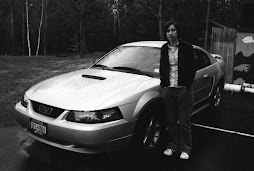In his latest for the New York Times, David Brooks explains that Barack Obama ran on two major points of "change": less partisan politics, and a more activist government.
And as Brooks argues, Americans wanted the less partisan, but they never said much about the activist part.
The problem is that in his first year in office, Obama has instead heavily promoted that second part (the activist government) while not making any inroads on partisan politics. Brooks suggests he flip-flops his agenda and give the people the change they want.
When Obama came into office, the press and other politicians were talking about Obama being the next FDR, but the American people were asking for economic recovery and jobs (two totally different concepts, despite them once coinciding during a war-time president's term). Obama's priorities instead focus on ushering America into a great new age, with new programs and fixes and health care and climate change and ah ah ah!
Now, as things are worse for the people, they just want some help. As Brooks says, "Voters are in no mood for a wave of domestic transformation. The economy is already introducing enough insecurity into their lives. Unlike 1932 and 1965 [when FDR and Lyndon B. Johnson brought similar "great new ages" to America through Democratic politics], Americans do not trust Washington to take them on a leap of faith, especially if it means more spending."
There's a reason Obama is having trouble floating bills out there that people like: "Voters are not reacting to the particulars of each bill. They are reacting against the total activist onslaught." They want a fix, not an agenda. Although Obama thinks he's giving them what he promised in his speeches, they insist on results now, or at least a president who is OK with setting aside sweeping changes to make sure people can get through the next few years.
Brooks' solution? "The next challenge is to find a new project, a new one-sentence description of what this administration hopes to achieve. It is obvious: President Obama will show that this nation is governable once again. He should return to the other element in his original campaign.
That would mean first leading a campaign of brazen honesty with the American people. He could lay out the fiscal realities and explain that voters cannot continue to demand programs they are unwilling to pay for."
Obama needs to remember that, for many people who voted for him, there was an intense desire to not so much change the way America's government affected life (which is what he's trying to do now) as there was to change America's government, period. (Once government changes, than its effects will, too.) Obama promised ditching partisan politics, and finding compromises, and helping everyone get along. He said there wouldn't be backbiting, and that one party wouldn't take over the process to push its way through (speaking against the Republicans then, but that's what his party is doing now).
People genuinely want that. And Obama has the speaking chops and leadership ability to bring it. But does he really want that? Or was that a campaign slogan he used as part of his grand scheme to usher in his Democratic system?
One of Brooks' suggestions is this: "Obama could serve as a one-man model for bipartisan behavior. Right now, the Republicans have no political incentive to deal on anything. But the president could at least exemplify the kind of behavior voters want to see in their leaders."
Or, in my own words: The politicians are going to fight, bicker, be self-serving, and shoot down any hope of progress either side has, so if most measures are going to fail, why not just take the high road? Be a new kind of person. Set a new kind of example. Show the politicians, stuck in their ruts, that there's a different way of doing business. Don't tell them; don't complain about them; don't whine when progress isn't made. Show them. Show.
This, of course, starts with the outlandish spending. There are cuts that can be made. (Imagine how much money could be freed up if the extremely expensive health care battle was shelved and, shock and awe, the President focused on reducing health care costs before trying to overhaul the system. He has said saving money was the point of the whole reform, right?)
As Brooks says, "If he really put aside the publicity gimmicks, he could illustrate the difference between responsible government and the permanent campaign."
That's what people are looking for: leadership, not more politicians constantly trying to woo people. Obama has the brain to think up new solutions, the leadership to unite people and charge into new challenges, and the communicating ability to reach out to politicians of both stripes as well as the populace. He could do much good in changing the political culture without ever passing a bill.
Isn't that what many Americans were voting for in November 2008?
A final word from Brooks: "We can spend the next few years engaging in kabuki bipartisanship, in which each party puts on pseudo-events to show that the other party is rigid and rotten, or somebody can break the mold."
For that person, I suggest the President of the most powerful country in the free world.
2.13.2010
Hey Obama, this is the "change" Americans wanted
Subscribe to:
Post Comments (Atom)


No comments:
Post a Comment